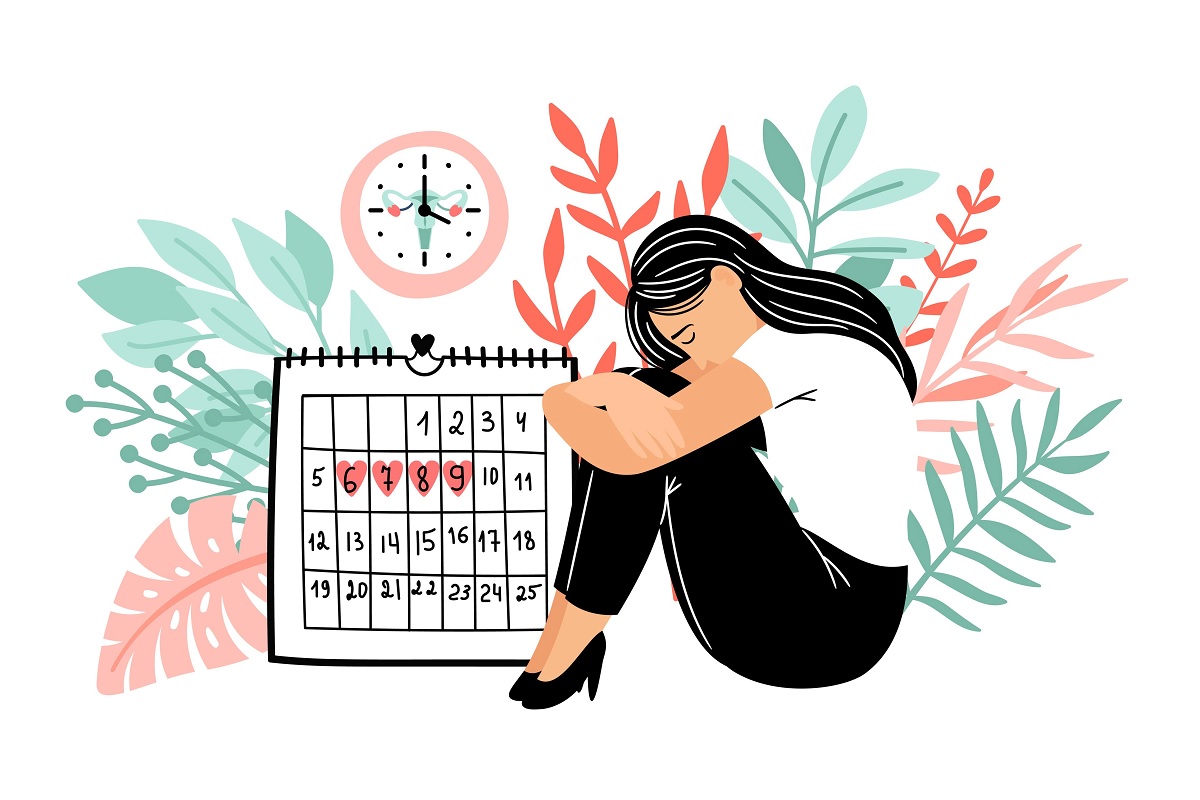In recent times, as more people are openly indulging in discussions related to menstruation, emphasising the right of the menstruators to seek paid leave and demanding a policy for the same, controversial and unsubstantiated statement by Union Minister Smriti Irani has caused an uproar. On December 13, Irani, who is the union minister for Women and Child Development, stated that menstruation was a natural part of life and should not be treated as a handicap requiring special leave provisions. “We should not propose issues where women are denied equal opportunities just because somebody, who does not menstruate, has a particular viewpoint..,” she said, as per a report in the Hindu.
Notably, while dismissing the need for paid menstrual leave, Irani brought focus to the (separate) issue of menstrual hygiene. The union minister announced the formulation of a draft national policy by the Ministry of Health and Family Welfare in collaboration with stakeholders which aims to improve awareness and access to proper menstrual hygiene management practices across the country. Furthermore, she also highlighted the existing ‘Promotion of Menstrual Hygiene Management (MHM)’ scheme, aimed at adolescent girls from 10 to 19 years old supported by the National Health Mission.
The same dismissive and problematic stance had been employed by the union minister while responding to a question raised by Dr. Shashi Tharoor in regards to paid menstrual policy. On December 8, Dr. Shashi Tharoor, a member of the Indian National Congress, raised questions regarding the provisions made by the Government for paid menstrual leave in the workplaces. Tharoor raised questions regarding provisions for mandatory paid menstrual leaves and further asked if there were any provisions in place to amend the Central Civil Service Rules, 1972 for including paid menstrual leave. He had also urged the union government to consider bringing in amendments in rules to accommodate such needs. As can be deduced from the questions raised by Tharoor, he wanted the menstrual leaves due to the suffering caused from severe dysmenorrhea or any similar pain. However, Irani’s response, focusing on the rarity of severe pain and existing leave types, sidestepped the need for specific menstrual leave, emphasizing instead the government’s initiatives for menstrual hygiene. Irani’s response entirely missed addressing the core concern of paid menstrual leaves despite highlighting hygiene efforts, and rather brought down the seriousness of the issue.
In the response, it is disappointing to see Irani taking the issue completely out of context. Irani responded that only a handful of women suffer from the pain which is manageable by medication. Her answer further provided that there was no proposal under consideration of the Government to make provision for paid menstrual leave mandatory for all workplaces. She further defends the action by providing that “female government employees” are given various types of leaves such as Earned Leave, Half Pay Leave, Extra Ordinary Leave, Child Care Leave, Commuted Leave, Maternity Leave, Leave on Medical Certificate, Leave Not due, etc. It remains unclear how the aforementioned leaves are to be substitute with the demand for paid menstrual leaves.
Even in her response, Irani goes on to specify multiple initiatives introduced by the union government to bolster menstrual hygiene across India. As per the answer, the Scheme for Promotion of Menstrual Hygiene targets adolescent girls, providing subsidized sanitary napkins through ASHA workers and supporting awareness campaigns. National Guidelines on Menstrual Hygiene Management under Swachh Bharat Abhiyan focus on rural areas, aiming for behavioural change regarding sanitation. The Pradhan Mantri Bharatiya Janausadhi Pariyojna offers affordable, eco-friendly sanitary napkins at Rs. 1 per pad through over 10,000 centres nationwide.
The complete answer can be read here:
After the statement made by the union minister went viral on social media, Bharat Rashtra Samithi (BRS) leader K. Kavitha took to ‘X’ (formerly Twitter) and said that she was disheartened by Union Minister Smriti Irani’s stand that there was no need for paid menstrual leave. The Telangana MLC further said she was appalled to see such “ignorance” of women’s struggles on the part of the Union Women and Child Development Minister. She also emphasised that menstruation is not a choice but a biological reality and denying paid leave ignores the genuine pain countless women endure.
“Disheartened by the Union Minister of Women and Child Development Smriti Irani Ji’s dismissal of menstrual struggles in the Rajya Sabha. As a woman, it’s appalling to see such ignorance, for our struggles, our journeys isn’t a consolation, it deserves a level playing field and that’s a non-negotiable,” she posted on December 15, as per the Hindu.
She further stated “As a woman, it’s disconcerting to see a lack of empathy for the genuine challenges women face and the fight we have to put up for everything. It’s high time to indeed bridge the gap between policy making and reality with empathy and reason.”
Related:
Lack of menstrual hygiene facilities depriving girls of right to education: J&K HC
UP: Mahila Shikshak Sangh demands monthly 3-day period leave
Shame, Taboo Resulting In Unhygienic Menstrual Practices Across Much of India

